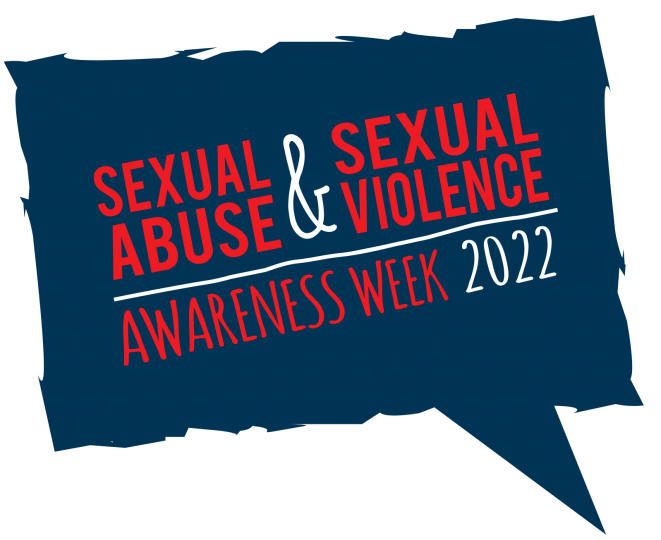
This week is Sexual Abuse and Sexual Violence Awareness Week 2022.
This week is Sexual Abuse and Sexual Violence Awareness Week 2022. The week aims to raise awareness of sexual abuse and sexual violence and encourage people and organisations to engage in conversations that could support people subjected to harm and abuse.
To support the week, we are using this blog to highlight useful resources and we will be contributing to the conversation on social media.
What is Sexual Abuse?
Sexual abuse includes a number of coerced sexual acts. Examples of sexual abuse include:
- Rape
- Indecent exposure
- Sexual harassment
- Inappropriate looking or touching
- Sexual teasing or innuendo
- Sexual photography
This form of abuse can also include subjecting someone to pornography, or witnessing sexual acts or sexual assault. The factor that links all of these examples is that the person does not consent, or they feel pressured into consenting.
Learn to Spot the Signs of Sexual Abuse
There are a number of physical signs to look out for. This could include cuts and bruises, unprecedented difficulty walking or sitting, irritation, pain or bleeding in the genital area.
In addition to these, there are some other, more subtle signs to look out for. For instance, a person might start using explicit sexual language. Or they might demonstrate significant changes in their behaviour and attitude towards sex. They might seem distant and listless. They may also develop sleeping problems.
Even if there are no physical signs of sexual abuse, abusers still leave their mark. The victim might refuse help with personal care. They might also be reluctant to be alone with certain people. Some victims of sexual abuse could start to self-harm.
Organisations that can provide support and resources
There are many organisations that offer support to survivors of sexual abuse and the people supporting them. Below we have shared information about some of these that we hope you will find useful.
- The Eve Appeal has produced guidance about attending cervical screening for survivors of rape, sexual abuse or assault, and offers tips to which may help people feel more comfortable about their appointment.
- NHS Sexual Assault Referral Centres offer medical, practical and emotional support to anyone who has been raped sexually assaulted or abused. They have specially trained doctors, nurses and support workers that operate 24/7.
- Men, boys and non-binary people are significantly less likely to report incidents of sexual abuse and sexual violence. Survivors UK offer a national online helpline, individual and group counselling for boys, men and non-binary people aged 13+ who have experienced sexual violence at any time in their lives. They also offer training for organisations and professionals.
- The Survivors Trust support those subjected to abuse and provide training and resources for professionals and organisations.
- Karma Nirvana support those subjected to honour-based abuse and forced marriage by running the national Honour Based Abuse Helpline and provide training to frontline practitioners and professionals.
- The Centre of Expertise on Child Sexual Abuse and Bedfordshire’s Institute for Health Research has been exploring how to address knowledge gaps around professional practice in supporting children from Black, Asian and minority ethnic backgrounds who are at risk of, or experiencing, child sexual abuse.
